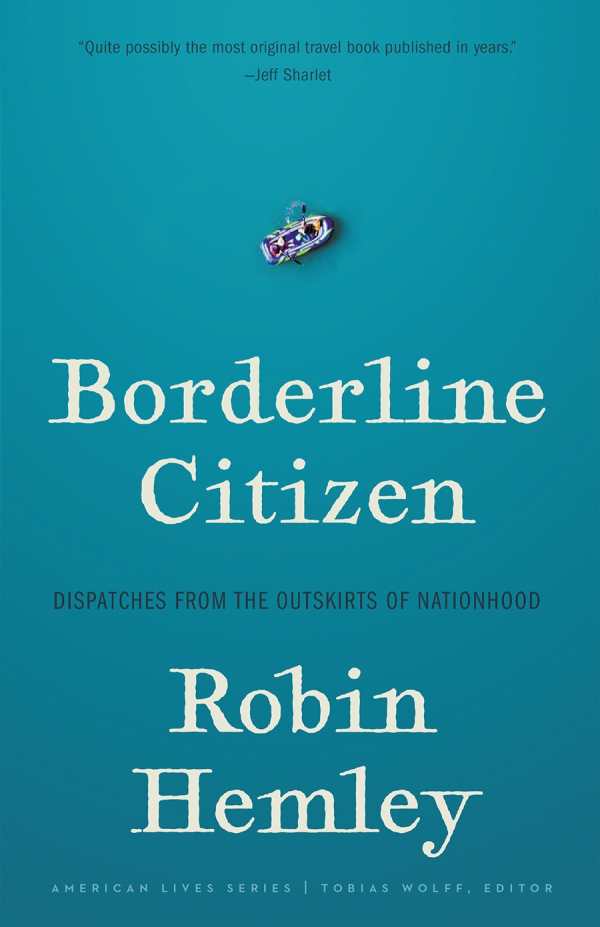Borderline Citizen
Dispatches from the Outskirts of Nationhood
Robin Hemley’s erudite essay collection Borderline Citizen probes the meaning of nationality.
Profiling enclaves and exclaves, overseas territories, and displaced people, the essays reveal the human and environmental costs of fighting for something which cannot be truly owned or defined. These explorations are global, stopping in China, the Philippines, Ecuador, and Point Roberts in Washington and illuminating history, culture, and peculiarities of national celebrations in limbo. They profile refugees in Australia, Cuba, and in resettlement camps along the India-Bangladesh border and consider war survivors and their dead, knowing that war and strife continually redefine nationhood, as do land swaps, economics, and migration.
Hemley is confronted with the flippant question of whether he’s a patriot, which he ponders in light of Snowden’s defection and refugee crises. He notes the arbitrary nature of boundaries and governments: territory changes hands, Hong Kong is given over, and Russian immigrants inhabit the renamed Kaliningrad. He also observes apathetic national celebrations filled with cotton candy and ice cream that are little more than tourist events and wryly witnesses “authentic” dances and costumes that have lost their meaning in the presence of transnational corporate homogeneity. Such incongruous details infuse a playful humor into serious situations.
Teasing wordplays and irony come in: a “man who is three Union Jacks to the wind” argues his Britishness in the isolated Falklands, considered worthless until injured national pride provoked a territorial war. Another essay pokes fun at jurisdictional challenges resulting from feudal land-swaps along the Belgian-Netherlands border. As a whole, the collection acknowledges human beings’ yearning to be part of a collective, but also illuminates the unforeseen, tragic, and sometimes hilarious consequences of belonging.
“Are we not all citizens of the world?” asks Borderline Citizen, a thought-provoking work that troubles the complexities of nationhood.
Reviewed by
Wendy Hinman
Disclosure: This article is not an endorsement, but a review. The publisher of this book provided free copies of the book to have their book reviewed by a professional reviewer. No fee was paid by the publisher for this review. Foreword Reviews only recommends books that we love. Foreword Magazine, Inc. is disclosing this in accordance with the Federal Trade Commission’s 16 CFR, Part 255.

